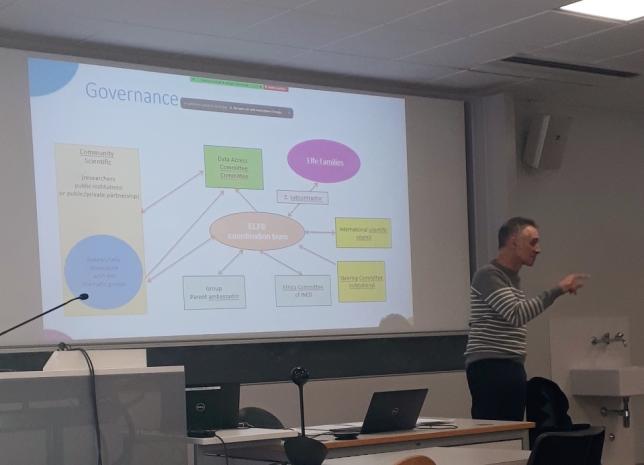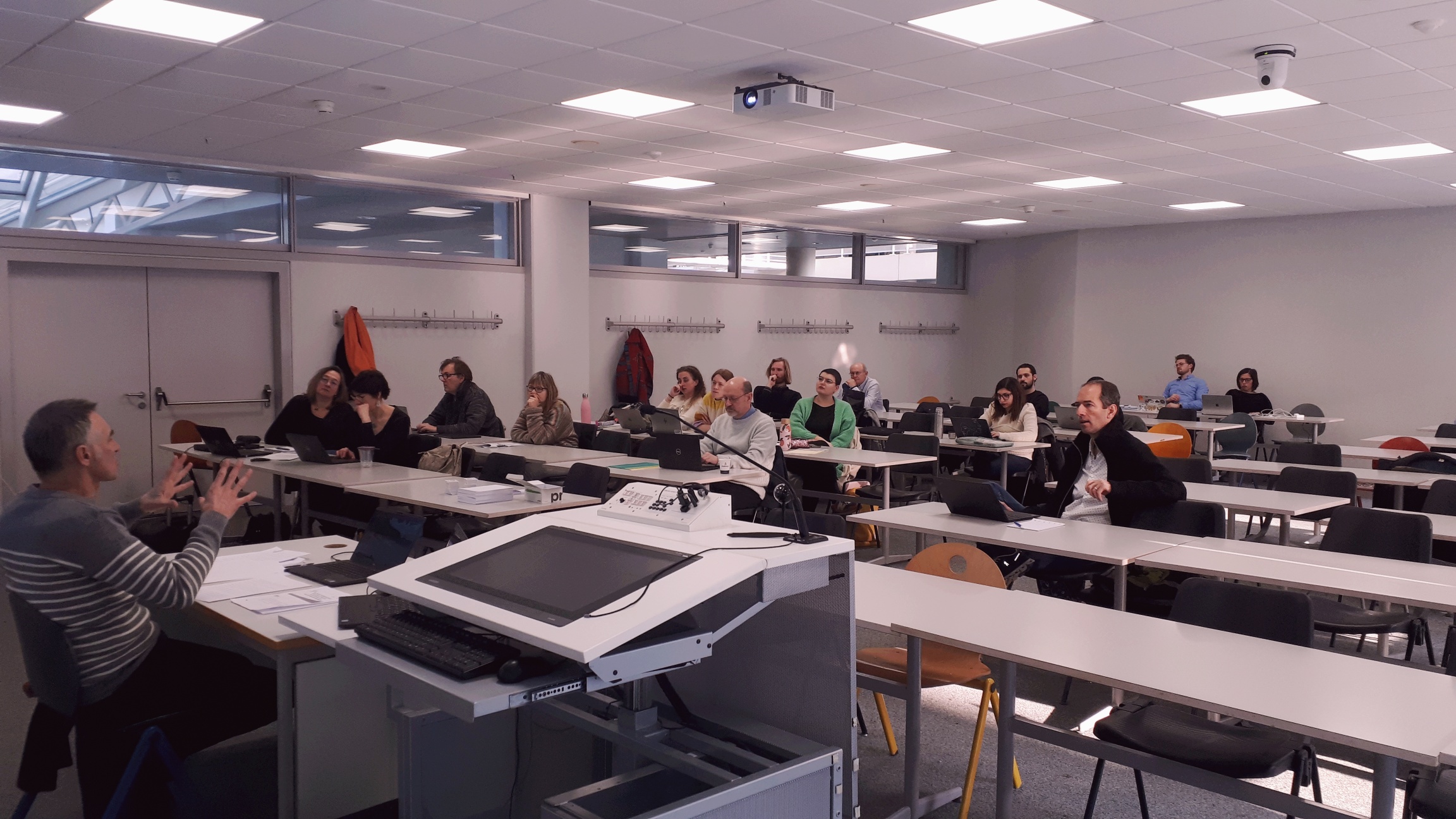
In the framework of its Doctoriales, Centre LIVES organised a public lecture by Prof. Xavier Thierry, from the Institut national d'études démographiques, about l'ELFE, the first French longitudinal study of national scope. He presented the theoretical foundations of the study, the recruitment (and retention) methods and the practical challenges of implementing such a study. In particular, the impossibility of subjecting families to a 3-hour questionnaire... and the personal and scientific compromises that accompany it.
Prof. Thierry also presented the DOHaD (Developmental Origin of Health and Diseases: long-term and predictive perspective), a project that aims to evaluate the role of environmental factors to which parents are exposed in the prenatal and perinatal period. The aim is to issue public health recommendations. The initial data show that it is necessary (and more effective) to invest in the early stages of life to limit the long-term harmful effects of environmental factors before birth. A few relevant examples support this point:
- Children conceived during the Spanish flu of 1918 were less healthy as adults than children born before or after.
- Babies conceived during the month of Ramadan are up to 33% more likely to be born blind.
- Fathers' diets can also be improved before conception to optimise the child's health in old age.
ELFE is a large-scale project and it is not possible to make general recommendations at this time, as the researchers involved in the project are trying to answer very specific questions. However, as with any longitudinal study, the data continues to be collected and exploited to bring more and more results.
Prof. Thierry concluded by pointing out that this kind of research is expensive and represents several million Euros. This national investment is invaluable for public policies, which benefit from the results and can in turn implement targeted measures.
ELFE is the first nationwide scientific study to follow children from birth to adulthood, addressing the multiple aspects of their lives from a social science, health and environmental perspective. Through regular monitoring of children, it will provide a better understanding of how the environment, family, school and living conditions of children can influence their development, health and socialisation.
After the conference, the day continued with presentations by doctoral students of the LIVES Centre (LIVES Doctoriales) who gave an update on the status of their research project and benefited from the comments of an external expert as well as questions from the audience.


